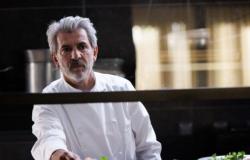![In France, we don’t have a lot of money but we still have ideas [L’éditorial de CL]](https://euro.dayfr.com/temp/resized/medium_2024-10-16-c9fb05c342.jpg)
“Trying to reduce the food divide is considered radical today. »
Let’s take this proposal to double the tax on overly sweet supermarket products, from 10 to 20%. This idea is not new, doubling it will not cover public deficits; it would only bring in around 1.4 billion euros per year. That said, it is more or less the same amount as the famous exceptional contribution which was to affect the 65,000 wealthiest tax households. This announcement and this figure announced by Michel Barnier himself on October 10 were to bring between 2 and 3 billion euros and more in “tax justice”. They were much more commented on than the recalibration by Bercy three days later: only 24,300 households would be “effectively liable” to this contribution according to official documents. For an amount of what order? Mystery.
Consumption: when France destocks [L’éditorial de CL]
Cardboard from clearance stores may be a trend. Above all, it is the worrying symbol of a country whose primary “leisure” consists of looking for ways to save money. Regardless of class. Find our editorial from Thursday October 10, 2024.
In the case of this overtaxation of sugary and ultra-processed products, this has not only been quantified but also marked. The idea is that this sum will allow the creation of a food check of thirty euros per month for four million of the poorest French people, allowing them to buy fruits and vegetables. It is therefore not just a way of finding new resources, it is the outline of a real public health policy.
Why is it possible to believe in it? Because the proposal comes not from politicians but from the profession concerned as a priority. “It’s still surprising for a boss like me to talk about nutritional taxation, but we assume,” almost laughs Dominique Schelcher, CEO of Coopérative U, which supports the “radical” proposals of the Montaigne Institute and supports the idea with other brands like Sodexo. Trying to reduce the food divide is indeed considered “radical” today.
This work, far from daily controversies and permanent evasions of responsibility, in any case allows us to still believe that in France, we do not have jackpots but still ideas.
France





